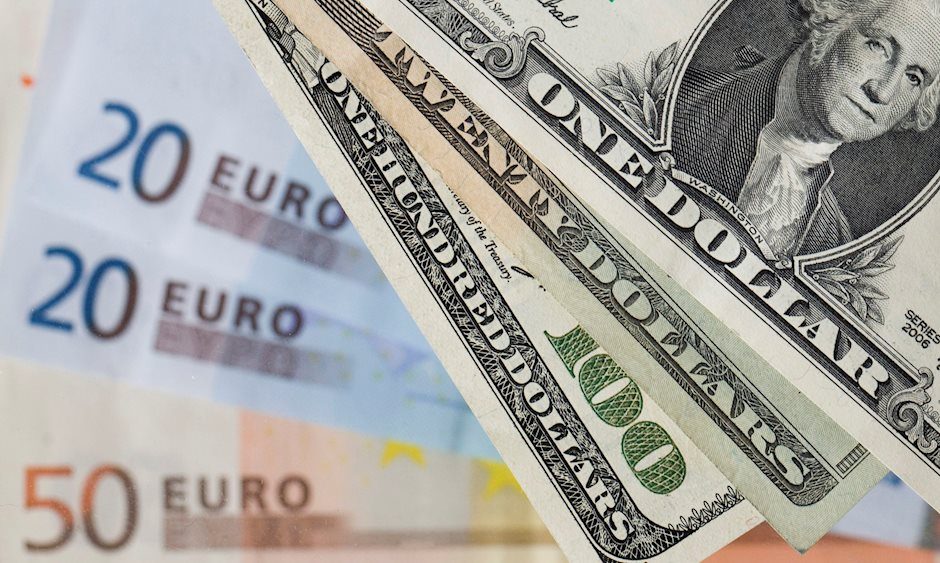EUR/USD holds below 1.0900 on firmer US Dollar, US Retail Sales eyed
- EUR/USD weakens near 1.0890 in Tuesday’s Asian session.
- Fed’s Powell said the central bank will not wait until inflation hits the 2% target to cut interest rates.
- The ECB is expected to hold the key interest rate unchanged at its July meeting on Thursday.

The EUR/USD pair trades on a weaker note around 1.0890 during the early Asian trading hours on Tuesday. The renewed US Dollar (USD) demand weighs on the major pair. Traders will keep an eye on US Retail Sales for June and the speech from the Federal Reserve’s (Fed) Adriana Kugler on Tuesday. On Thursday, the European Central Bank (ECB) interest rate decision will take center stage.
Traders increased their bets that the US Federal Reserve (Fed) would cut the interest rate in September. On Monday, Fed Chair Jerome Powell said that the central bank will not wait until inflation hits the 2% target to cut interest rates. “The implication of that is that if you wait until inflation gets all the way down to 2%, you’ve probably waited too long, because the tightening that you’re doing, or the level of tightness that you have, is still having effects which will probably drive inflation below 2%,” said Powell.
Meanwhile, Fed Bank of San Francisco President Mary Daly stated that inflation is cooling down in a way that bolsters confidence it’s on its way to 2%. However, Daly added that more information is needed before making a rate decision. The Fed rate cut expectation is likely to drag the Greenback lower and create a tailwind for EUR/USD.
On the other hand, the ECB is anticipated to hold the main refinancing rate, the interest rate on the marginal lending facility, and the deposit facility unchanged at 4.25%, 4.50%, and 3.75%, respectively, at its July meeting on Thursday. The ECB decided to cut the interest rate for the first time since 2019 in June after nine months of leaving the rate unchanged. Analysts expect that two more rate cuts are on the table this year, in September and December
Euro FAQs
The Euro is the currency for the 20 European Union countries that belong to the Eurozone. It is the second most heavily traded currency in the world behind the US Dollar. In 2022, it accounted for 31% of all foreign exchange transactions, with an average daily turnover of over $2.2 trillion a day. EUR/USD is the most heavily traded currency pair in the world, accounting for an estimated 30% off all transactions, followed by EUR/JPY (4%), EUR/GBP (3%) and EUR/AUD (2%).
The European Central Bank (ECB) in Frankfurt, Germany, is the reserve bank for the Eurozone. The ECB sets interest rates and manages monetary policy. The ECB’s primary mandate is to maintain price stability, which means either controlling inflation or stimulating growth. Its primary tool is the raising or lowering of interest rates. Relatively high interest rates – or the expectation of higher rates – will usually benefit the Euro and vice versa. The ECB Governing Council makes monetary policy decisions at meetings held eight times a year. Decisions are made by heads of the Eurozone national banks and six permanent members, including the President of the ECB, Christine Lagarde.
Eurozone inflation data, measured by the Harmonized Index of Consumer Prices (HICP), is an important econometric for the Euro. If inflation rises more than expected, especially if above the ECB’s 2% target, it obliges the ECB to raise interest rates to bring it back under control. Relatively high interest rates compared to its counterparts will usually benefit the Euro, as it makes the region more attractive as a place for global investors to park their money.
Data releases gauge the health of the economy and can impact on the Euro. Indicators such as GDP, Manufacturing and Services PMIs, employment, and consumer sentiment surveys can all influence the direction of the single currency. A strong economy is good for the Euro. Not only does it attract more foreign investment but it may encourage the ECB to put up interest rates, which will directly strengthen the Euro. Otherwise, if economic data is weak, the Euro is likely to fall. Economic data for the four largest economies in the euro area (Germany, France, Italy and Spain) are especially significant, as they account for 75% of the Eurozone’s economy.
Another significant data release for the Euro is the Trade Balance. This indicator measures the difference between what a country earns from its exports and what it spends on imports over a given period. If a country produces highly sought after exports then its currency will gain in value purely from the extra demand created from foreign buyers seeking to purchase these goods. Therefore, a positive net Trade Balance strengthens a currency and vice versa for a negative balance.
Author

Lallalit Srijandorn
FXStreet
Lallalit Srijandorn is a Parisian at heart. She has lived in France since 2019 and now becomes a digital entrepreneur based in Paris and Bangkok.
















